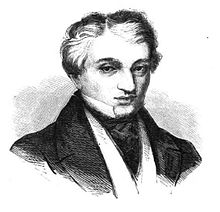

InGreece, ephor (Greek: έφορος, romanized: ephoros, lit. 'overseer') is a title given to the head of an archaeological ephorate (Greek: εφορεία, romanized: ephoria), or archaeological unit. Ephors are responsible to the Ministry of Culture and Sports.
Most ephorates are responsible for a particular region of Greece. However, the Ephorate of Underwater Antiquities has jurisdiction over underwater sites across the whole of Greece,[1] as does the Ephorate of Private Archaeological Collections, while two Ephorates of Palaeoanthropology and Speleology exist, one for northern and one for southern Greece.[2]

The title of ephor was first used in archaeological circles for Andreas Moustoxydis, who was appointed by Ioannis Kapodistrias in October 1829 as 'Director and Ephor' of the first national archaeological museum, then on the island of Aegina.[3] In 1834, the Greek Archaeological Service was established by the Archaeological Law of 10/22 May,[4] which also formally established the position of Ephor General of Antiquities (Greek: Γενικὸς Ἔφορος τῶν Ἀρχαιοτήτων), first held by Ludwig Ross after the abortive tenure of the architect Adolf Weissenberg.[5] Ross had previously held the title of 'Ephor' of Antiquities of the Peloponnese, from 1833.[6]
Until the mid-1870s, the Greek Archaeological Service consisted entirely of the Ephor General himself, sometimes supported by a personal assistant.[7] In 1871, the privately organised Archaeological Society of Athens, which had taken on some of the state's responsibility for excavating and managing cultural heritage,[8] began to appoint its own travelling ephors, known as 'apostles'. The primary duties of these 'apostles' were to conduct archaeological work throughout Greece, to combat archaeological looting and the illegal trade in antiquities, and to persuade citizens to hand over antiquities, particularly those acquired illegally, to the care of the state.[9] The first of these was Panagiotis Stamatakis, whose work formed the basis for several public archaeological collections throughout Greece;[9] he was followed in 1874 by Athanasios Dimitriadis, in 1880 by Dimitrios Philios, in 1882 by Christos Tsountas, in 1884 by Vasilios Leonardos, in 1891 by Andreas Skias and in 1894 by Konstantinos Kourouniotis.[10] From the 1870s, the Archaeological Service began to employ its own ephors, expanding continuously until the early 1910s.[10] These ephors generally had responsibility for a particular region of Greece: Stamatakis, for example, was recruited in 1875 to oversee antiquities in Central Greece.[11]
In 1909, following the Goudi coup and the so-called 'mutiny of the superintendents' among the ephors of the Archaeological Service,[12] the Ephor General Panagiotis Kavvadias was removed from office, and the post of Ephor General abolished.[13] The title was briefly reintroduced in the 1960s, and occasionally used by Spyridon Marinatos during the Regime of the Colonels, then abolished again in 1982.[14]

Though the titles of ephor and ephorate remain for the regional units, the professional head of the Greek Archaeological Service is typically referred to as the 'director-general' or 'General Inspector' of Antiquities.[15]
Before 2014, the archaeological ephorates of Greece were divided both by geographical region and the historical periods of the remains for which they were responsible. They were organised as follows:[16]
In 2014, under Presidential Decree no. 104, the regional ephorates were amalgamated into a single ephorate for each regional unit, covering all chronological periods.[17]
| Portrait | Ephor General of Antiquities | Took office | Left office | Notes |
|---|---|---|---|---|
| Adolf Weissenberg[note 1] (1790–1840) | 1833 | September 1834[19] | Bavarian architect, appointed as 'ephor' for the antiquities of Greece by King Otto of Greece. | |
| Ludwig Ross (1806–1859) | 1834 | 1836[21] | German archaeologist and Classical scholar. The first to be appointed as Ephor General after the formal creation of the Ephorate under the Archaeological Law of 10/22 May.[22] | |
| Kyriakos Pittakis (1798–1863) | 1836 | 1863 | The first native Greek to hold the office. Styled as 'Ephor of the Central Public Museum' 1836–1843.[23] Responsible for the first excavation and restoration of the Lion GateatMycenae. | |
| Panagiotis Efstratiadis (1815–1888) | 1864 | 1884 | Responsible for the construction of the first Acropolis Museum. | |
| Panagiotis Stamatakis (c.1840–1885) | 1884 | 1885 | Promoted barely a year before his death from malaria. | |
| Panagiotis Kavvadias (1850–1928) | 1885 | 1909 | Directed the excavations of Epidaurus. Post abolished after his removal from office. |
After the abolition of the position of Ephor General in 1909, the title was revived by the law 4177/1961 in 1961.[24] Three positions at the same rank were created simultaneously.[25]
| Portrait | Ephor General of Antiquities | Took office | Left office | Notes |
|---|---|---|---|---|
| Christos Karouzos (1900–1967) | 1961 | 17 August 1964[25] | ||
| Semni Karouzou (1897–1994) | 1961 | 17 August 1964[25] | The first woman to be employed by the Greek Archaeological Service, and the only one to hold the rank of Ephor General. | |
| Yannis Papadimitriou [el] (1904–1963) | 1961 | 1963 | Died in office. |
Under the Regime of the Colonels, Spyridon Marinatos was appointed as head of the Greek archaeological service, and sometimes used the title of Ephor General:[26]
| Portrait | Ephor General of Antiquities | Took office | Left office | Notes |
|---|---|---|---|---|
| Spyridon Marinatos (1901–1974) | 1967 | 1973 | Sacked by Dimitrios Ioannidis after the latter seized power in November 1973. |
The rank of Ephor General was formally abolished once again by the law 1232/1982 in 1982.[14]

As of 2022,[update] the regional ephorates of the Greek Archaeological Service are as follows:[27]
{{cite book}}: CS1 maint: location missing publisher (link){{cite book}}: CS1 maint: location missing publisher (link)